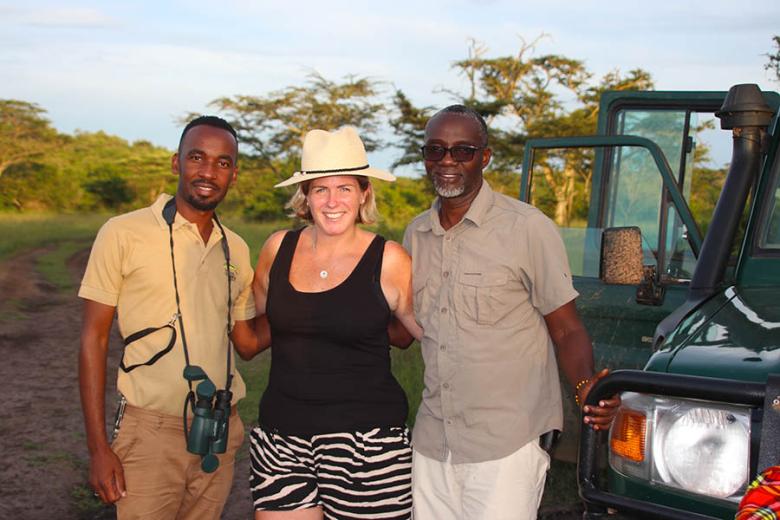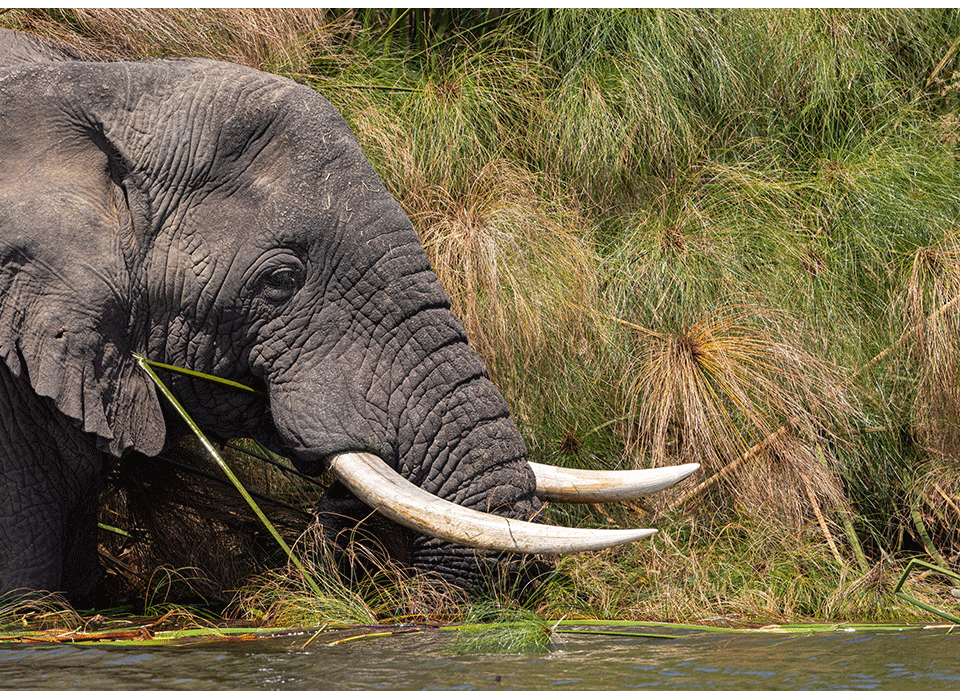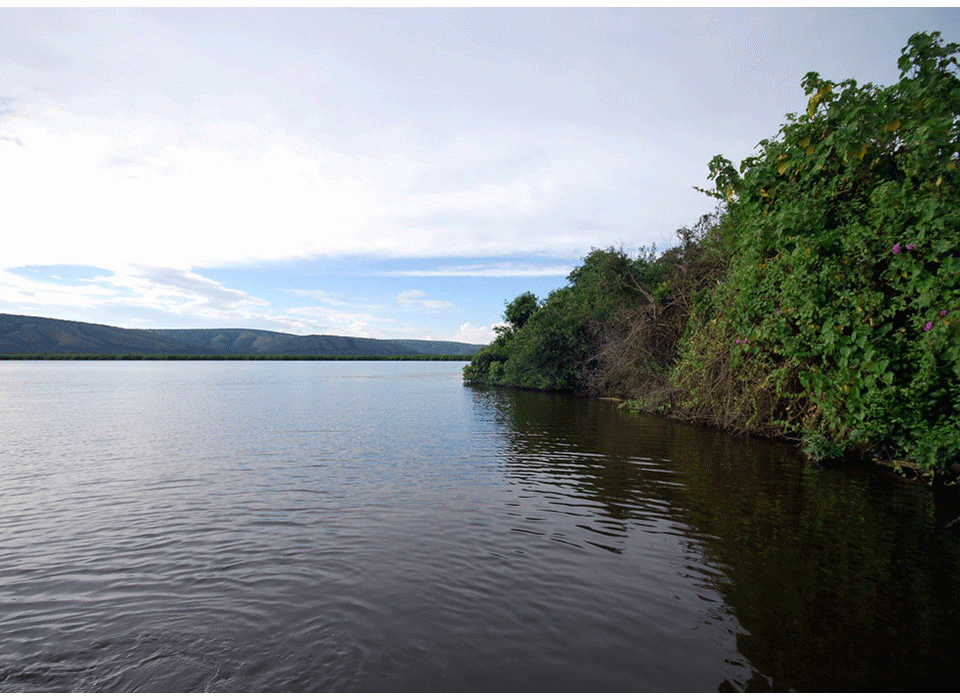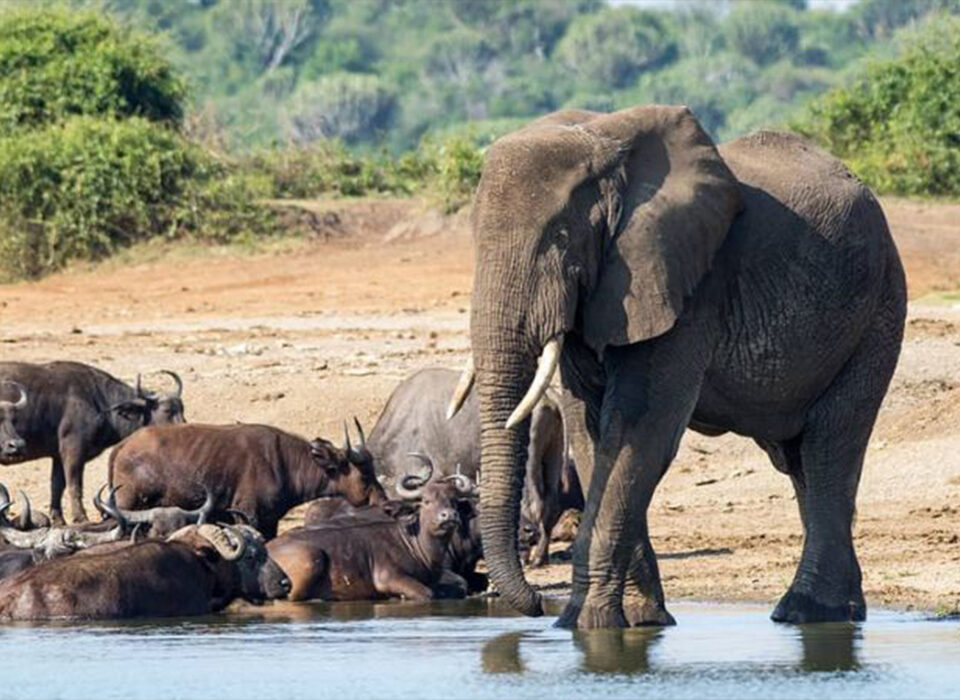
Can I Use Credit Cards in Uganda?
November 6, 2025
What currency is used in Uganda?
November 6, 2025How Much Should I Tip My Safari Guide?
Tipping while on safari sometimes creates confusion, especially for travelers going to Africa for the first time. In countries like Uganda, Kenya, and Tanzania, tipping isn’t just a kind gesture but also part of the tourism culture and a meaningful way to show appreciation for the people who make your safari experience unforgettable. From expert guides and drivers to porters and lodge staff, the people behind your journey work tirelessly to make every moment memorable.
But how much does one pay the guide? Are there set rates, or does it vary depending on the type of safari, size of group, and quality of service? In this detailed guide, we’ll look at all you need to know about tipping on safari in Uganda and East Africa-how much to pay, when to give a tip, and how to go about doing it respectably.
Why Tipping Matters on Safari
Safari guiding is an immensely skilled, patient, and dedicated profession. Guides are the heart of every safari experience: they are your driver, your storyteller, your wildlife expert, your interpreter, and sometimes even your photographer. Whether tracking a pride of lions through the savannah, identifying rare birds up in the forest canopy, or driving park roads safely, it is their expertise that will turn your trip into an extraordinary one.
Tipping is not obligatory, but it is highly valued. In most African countries, guides and staff depend on tips as a big percentage of their income. Most safari companies and lodges pay reasonable basic salaries, but a tip makes all the difference and may support their families and the community.
More importantly, tipping is a personal way to express gratitude for outstanding service. Tipping reflects your guide’s efforts to make you comfortable and safe, the knowledge they shared, and also the unforgettable moments they have been able to help you create.
Factors that Influence How Much to Tip
The amount one should tip a safari guide will depend on a few key factors, including destination, type of safari, group size, and the length of your trip.
1. The Country You’re Visiting
Tipping practice in each of the East African countries is slightly different. In Uganda, however, tipping culture is warm but relaxed: never demanded but highly appreciated. The same practice applies to Kenya and Tanzania. For Uganda, where most safaris include either gorilla or chimpanzee trekking, guides often go above and beyond, and tipping reflects this special experience.
2. Private vs. Group Safari
On a private safari, your guide is all yours, and in some cases, from the time he or she picks you up at the airport until the end of your journey. In such cases, where the guide is exclusively available for you throughout the trip, the tipping tends to be higher.
On a group safari, tips are divided among a larger number of guests, lowering the per-person cost.
3. Length of Your Safari
This would mean a smaller total tip for shorter safaris of 3–5 days, while for longer safaris of 7–14 days, it’s fair that the amount is increased to reflect the extended service and effort.
4. Quality of Service
Excellence should be recognized. If your guide proved to be very good at finding rare wildlife, successfully dealt with difficult terrain, or otherwise enrichened your understanding of Ugandan culture and the natural environment, he/she certainly deserves a more generous tip.
Recommended Tipping Guidelines for Safari Guides
Although there is no strict rule, most travelers follow regional norms that are recommended by tour operators and lodges. Below are some practical guidelines for tipping your safari guide or driver in Uganda and East Africa.
Private Safari (Per Traveler)
Driver/Guide: USD $15–$25 per person per day
Per day, a couple or family travelling together can get by on USD $30–$50 total.
On a ten-day safari, you should budget to tip around $150 to $250 per person for the entire trip, depending on service quality.
Group Safari (Shared Vehicle)
Driver/Guide: US$10–US$15 per person per day
If the group is large (6–8 people), each traveler can contribute to a pooled tip presented at the end of the safari.
Specialist or Ranger Guides
For specialized activities such as gorilla trekking, chimpanzee tracking, or birdwatching safaris, you are often accompanied by park rangers or expert trackers, and tipping these personnel is also important and welcomed.
Gorilla Trekking Ranger/Tracker: USD $10–$20 per person per trek
Chimpanzee Trekking Guide: USD $10–$15 per person per trek
Porters: USD $10–$15 per porter per trek (more if they provided extra help).
Lodge and Camp Staff
Many safari lodges have multiple employees behind the scenes: chefs, cleaners, waitstaff, and sometimes security personnel. Rather than trying to tip all of these individually, most lodges will have a communal tip box located at reception, with funds shared between all staff.
Suggested rate: USD $5–$10 per person per night for mid-range lodges, and $10–$20 for luxury properties.
Transfer Drivers and Airport Assistants
Consider $3-$5 for driving you to the airport or handling your luggage as a kind and polite tip.
How and When to Tip
Tipping in Uganda is unofficial, so one need not worry about any complicated etiquette. The key is to be unobtrusive and considerate.
1. Timing
It’s best to give the guide a tip at the end of your safari, during the farewell moment when you go your separate ways. This gives you time to review the overall service and show your gratitude in person.
For lodge staff: before checking out, use the communal tip box. For trackers and porters when gorilla or chimpanzee trekking: this is usually given immediately after the activity once you return to the ranger station.
2. Currency
Tipping is accepted in U.S. dollars or Ugandan shillings. If you pay in USD, please ensure that your bills are clean, untorn, and printed after 2009. Banks and businesses in general do not accept older or damaged notes.
Travelers find it convenient to carry smaller denomination notes, namely $5, $10, and $20 bills, which can be easily distributed.
3. Presentation
Place the tip in an envelope or folded note and give it directly to the guide or driver, thanking them for their work. A simple, genuine message of appreciation means as much as the money itself.
For lodge staff, use the general tip box provided unless you have an exceptional staff member with whom you’d like to express a more personal tip, such as your waiter or room attendant.
4. Group Contributions
If traveling as a group, it’s a good idea to collect money from everyone well in advance and ask one person to give the envelope to the guide. This avoids confusion and makes it feel more organized and respectful.
Cultural Considerations
Ugandans are warm, polite, and deeply appreciative of acts of kindness. Tipping in Uganda is not seen as a must, but rather as a way to show appreciation. Most guides and staff will never ask for tips; in fact, they might decline initially out of humility. Insisting politely or leaving it with a thank-you note is perfectly acceptable.
Avoid excessive tipping or showing off with money, as this will make them feel uneasy. A fair and balanced amount, given with sincerity, goes much further than large, impersonal gestures.
Beyond Money: Non-Monetary Ways to Show Appreciation
Of course, cash tips are the most practical way to thank your safari guide; however, there are other thoughtful gestures that can really make a statement.
Positive Reviews: If possible, mention your guide or lodge staff by name in online reviews or travel feedback, which could result in recognition and even opportunities.
Recommendations: If you enjoyed your safari, recommend your tour company to friends or on social media.
Small Gifts: Useful items, such as headlamps, camping gear, or good reusable water bottles, are well received, especially by guides who spend much of their time in the field.
Common Mistakes Travelers Make
Forgetting to Carry Small Bills: Always carry enough small denominations to avoid over-tipping because of lack of change.
Tipping Too Early: Instead, wait until the end of your experience so you can correctly assess what level of service you have received.
Tipping in Public: Give discreetly; never give out money when in a crowded place.
Underestimating Support Staff: Most of the credit seems to go to the guides, while in fact, cooks, cleaners, and porters add much to your experience.
Sample Tipping Budget for a 10-Day Safari
Here is a rough example for a couple on a 10-day private safari in Uganda:
Safari Guide/Driver: $40 per day × 10 days = $400
Lodge Staff (shared tip box): $10 per person per night × 10 nights = $200
Gorilla Trekking Ranger: $20 per person = $40
Porter (if used): $15 per trek = $30
Airport Transfers and Miscellaneous: $30 total
Total Recommended Tipping Budget: approximately $700 for two people for a 10-day safari.
This may sound like a lot, but remember: You’re tipping directly the people who work hard to make your trip seamless, safe, and memorable.
Gratitude is a virtue.
At the heart of tipping is not about the amount, but appreciation. Your safari guide may have spotted that elusive leopard you dreamed of seeing, navigated miles of rough terrain, or shared valuable insights into Uganda’s wilderness. A respectable tip acknowledges that effort and leaves a lasting positive impact.
How much should you tip your safari guide?
The ideal range is between $15 and $25 per person per day for private safaris, adjusted according to your satisfaction, the group size, and the duration of your trip. For shorter excursions, such as gorilla trekking or day tours, smaller tips are perfectly acceptable, while longer safaris merit a bit more. After all, the size of a tip given is less important than acknowledging the passion and professionalism that really make safaris in Uganda special.
Let Experiya Tour Company inspire your safari with immaculate service from this leading local operator, knowledgeable guides, and personalized itineraries that promise a faultless flow. Be it trekking mountain gorillas, exploring Murchison Falls, or taking in the sights on a Kazinga Channel cruise, Experiya makes sure every moment is guided in great care, expertise, and real hospitality.




